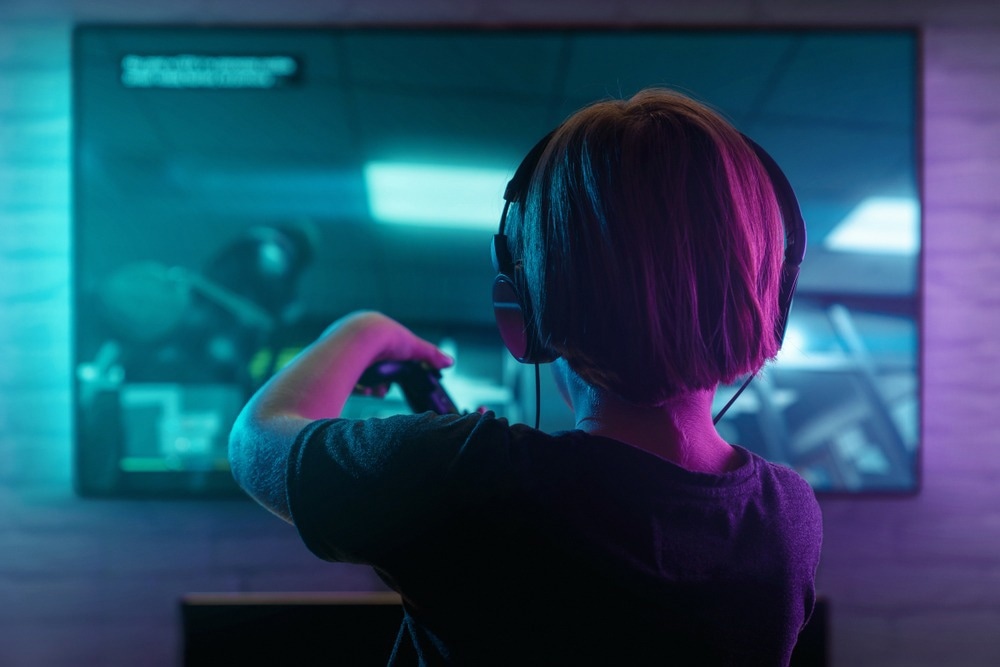A recent study published in JAMA Network Open investigated the association between video games and children's cognitive skills using self-reported screen time surveys and task-based functional magnetic resonance imaging (fMRI).

Study: Association of Video Gaming With Cognitive Performance Among Children. Image Credit: rangizzz/Shutterstock
Background
The growth in video gaming and the subsequent increase in the percentage of children playing video games in the past two decades has led to growing concerns about mental health and behavioral issues such as violence, depression, and aggression.
In contrast to the results of the psychological studies, a positive association has been proposed between video gaming and cognitive skills. The perceptive and attentive decision-making skills demanded by video games are thought to equip children with cognitive flexibility, enhanced reaction time, logic, and problem-solving skills that can be transferred to real-life tasks.
Studies report associations between video games, improved top-down and bottom-up attention, and improved visuospatial memory in video gamers. Enhanced long-duration cognitive-control functions have also been observed in association with video gaming, especially in improved reading ability in dyslexic children. Studies have also used fMRI to study brain activity in video gamers. However, despite various investigations into the association between cognitive function and video gaming, the neurological mechanisms remain unclear, possibly due to inadequate sampling.
About the study
In the present study, the researchers used the Adolescent Brain Cognitive Development (ABCD) study, the largest and longstanding study conducted in 21 sites across the United States on child health and brain development, to build the dataset. The dataset consists of behavioral and neuroimaging data of nine- and 10-year-old children. Self-reported surveys on the number of hours spent per week on the computer, smartphone, console, and other electronic devices were used for the analysis.
The ABCD sample was demographically varied and excluded participants who had MRI contraindications such as pacemakers and cochlear implants, inability to speak English, major neurological disorders, sensorimotor and hearing impairments, autism spectrum disorder, schizophrenia, birth complications, gestational age less than seven months, low birth weight, and the reluctance to complete assignments. The study included 2105 mono and dizygotic twins.
The survey consisted of questions on the time spent on any type of screen time the children engaged in on typical weekdays and weekends. The categories covered social networking sites, YouTube videos, television shows and movies, video games on computers, smartphones and consoles, and video and text chatting.
Demographic information and health and weight measurements were collected. The National Institutes of Health Toolbox cognition battery was used to derive the intelligence quotient (IQ) scores, while the Child Behavior Checklist (CBCL) was used to assess mental health symptoms.
The blood oxygen level-dependent (BOLD) signal and cognitive performance determined from task-based fMRI data were compared between video gamers and non-video gamers during working memory and response inhibition.
Results
The results indicated that video gamers performed better than non-video gamers at stop signal tasks (SST) and n-back tasks and showed greater BOLD signals in the fMRI images of the precuneus. The calcarine sulcus and occipital cortex of video gamers showed lower BOLD signals, while the precuneus and the middle, frontal, subparietal, and cingulate gyri showed activation during n-back tasks.
Though the study did not observe any significant differences in the mental health and behavioral characteristics between video gamers and non-gamers, the video gamers scored highest in all the CBCL categories, indicating the probability of more serious effects with prolonged exposure to video games.
The SST behavioral performance findings suggested that video gamers are less susceptible to distractions and perform better than non-video gamers at the response- and selection-based tasks. The results from the n-back tests also indicated better visuospatial working memory in video gamers. The overall results provided evidence of enhanced recruitment of attention control areas of the brain through response inhibition tasks.
Conclusions
Overall, the study found that video gaming was associated with improved cognitive function involving working memory and response inhibition. Despite the high CBCL scores in video gamers, the results suggest the possibility that the cognitive training provided by video games could have substantial neurocognitive growth outcomes.
The longitudinal nature of the ABCD study will enable researchers to investigate cognitive correlates in the participants over the years and even examine the associations between behavioral issues and video gaming over time.